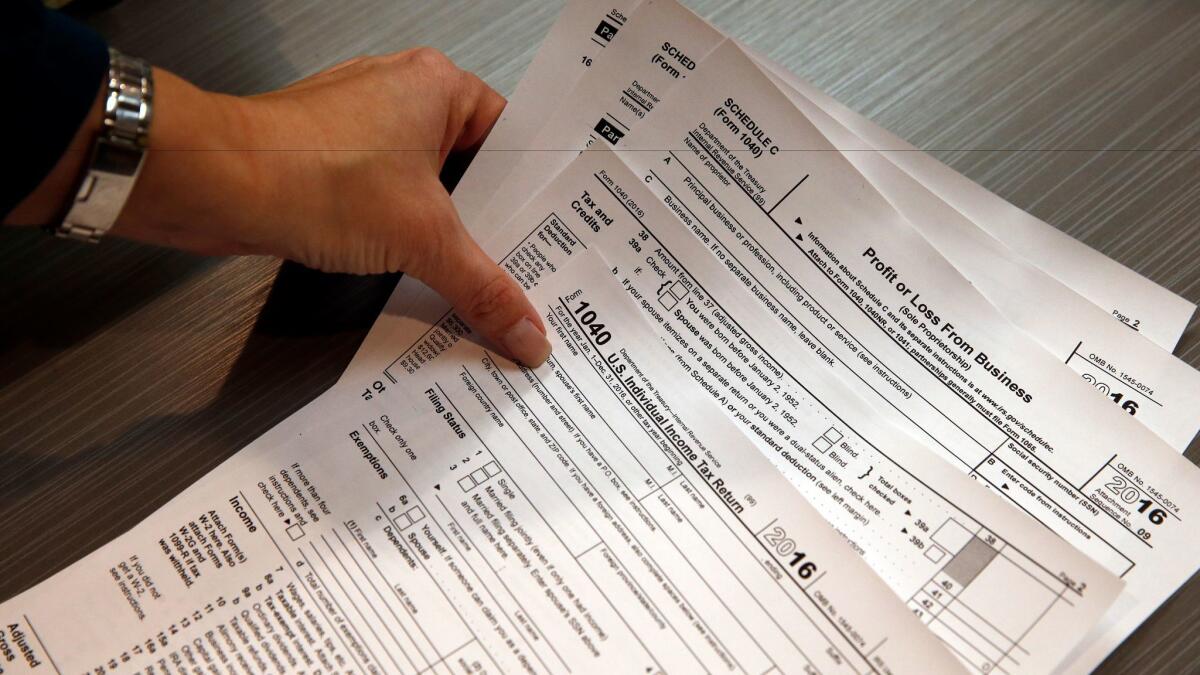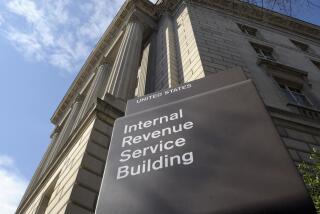How to find a good tax preparer (and write off the bad ones)

Tax preparers do a big chunk of America’s tax returns, but if you’re nervous about handing confidential information to someone in a largely unregulated field, you’re not alone. Here are some tips to help you find a good one.
Be choosy
Asking friends, family or colleagues for recommendations can quickly reveal a preparer who has caused headaches, said Melissa Labant, director of tax policy and advocacy at the American Institute of CPAs.
Tax attorneys and enrolled agents specialize in or have passed exams on tax rules, and many certified public accountants also specialize in tax preparation. At a minimum, Labant says, a legitimate preparer should have a Preparer Tax Identification Number, or PTIN, from the IRS.
Never assume that because someone works at a big tax-prep company he or she must be an enrolled agent or a CPA, warns Trish Evenstad, president of the Wisconsin Society of Enrolled Agents. You can verify PTINs and professional credentials on the IRS website, and you can check accounting and law licenses on state-level CPA and bar association websites. The National Assn. of Enrolled Agents also maintains a directory.
Know what to look for
The IRS requires paid tax preparers to put their name and PTIN on returns they prepare. Not doing so, or asking you to sign a blank return first, suggests that a preparer is up to no good, Evenstad said. Directing your refund to a bank account that’s not yours is another red flag. And make sure your return doesn’t say “self-prepared.”
Good preparers will ask for last year’s return so they can exercise due diligence, Labant says. The preparer should provide a secure portal for sending information too.
Report bad apples
If a preparer wrongs you, you have a few options. You can complain to the IRS by filling out Form 14157 and sending along supporting documents. Alerting the National Assn. of Enrolled Agents, the National Assn. of Tax Professionals and other professional groups might also spark an internal investigation if the preparer is a member, Evenstad says.
Getting restitution, though, might be harder. According to Council of Better Business Bureaus data, just 66% of customer complaints against tax preparers in 2015 were resolved.
If a preparer steals from you, call the police and file a complaint with the IRS.
“If they’ve stolen your identity, you definitely want to turn them in to the [IRS] Office of Professional Responsibility,” Evenstad says. “If they’ve stolen yours, they’ve probably stolen other people’s.”
Good preparers who make honest mistakes usually will pay your penalties, though any extra taxes will likely be on you, Evenstad adds.
Orem is a staff writer at NerdWallet, a personal finance website.
ALSO
Seven steps to improve your finances in 2017
Front-load your IRA in January for a bigger payoff
When a new spouse brings surprise debt to the marriage






